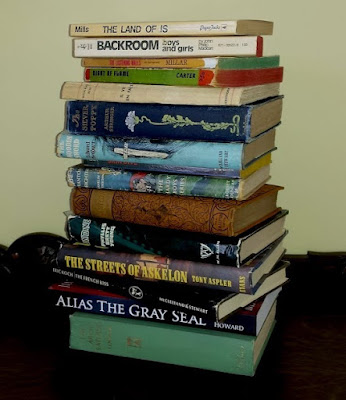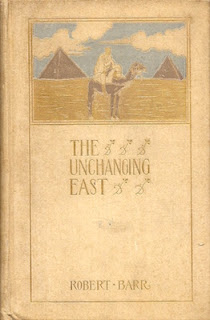The Listening Walls
Margaret Millar [abridged by George McMillin]
New York: Falcon, 1975
The Listening Walls
Collected Millar: The Master at Her Zenith
Margaret Millar
New York: Syndicate, 2016
I'm a great fan of Syndicate Books' seven-volume Collected Millar. Not only did it return all twenty-five of the author's novels to print – most unavailable for decades – it did so in attractive volumes and at affordable prices. The only criticism I have seems to be shared by pretty much everyone familiar with the set: the print is too darn small. My middle-aged eyes can manage, but given the choice I'll reach for an old mass-market paperback any day. This is why I was quick to splurge 25 cents on a Falcon edition of The Listening Walls spotted at a charity shop last month. In my haste, I didn't notice this small print on the cover:
There's irony for you. Or is it? Alanis Morissette has still got me confused.
Edited and abridged "for young people and adults who want to read books of mature content with greater ease and enjoyment," Falcon Books meant nothing to me. Interior copy informs that they were "especially recommended as supplemental readers in junior and senior high school courses;" happily, they weren't used in mine. If my 25¢ copy of The Listening Walls is anything to go by, the abridgements stripped much of what made their originals worth reading. Consider the opening paragraph to Margaret Millar's The Listening Walls:
From her resting place in the broom closet Consuela could hear the two American ladies in 404 arguing. The closet was as narrow as the road to heaven and smelled of furniture polish, chlorine, and of Consuela herself. But it was not physical discomfort that disturbed her siesta, it was the strain of trying to understand what the Americans were arguing about. Money? Love? What else was there, Consuela wondered, and wiped the sweat off her forehead and neck with one of the towels she was supposed to place in the bathrooms at exactly six o'clock.Now, here is the Falcon abridged version:
From the broom closet, Consuela could hear the two American ladies arguing in Room 404. The closet was small and smelled of furniture polish and cleaning fluid, and of Consuela's own body. But it was not the tiny closet and its smells that disturbed her siesta – her afternoon nap. It was the argument she was hearing through the wall. She strained to hear what the Americans were arguing about. Was it money? Was it love? What else could it be? Console wondered about it and wiped the sweat off her forehead and neck with one of the clean towels she was supposed to put in the bathrooms.Things are spelled out – "404" becomes "Room 404," "chlorine" becomes "cleaning fluid" – and subtleties are missed. What spoils
Consuela's siesta (not necessarily an "afternoon nap," says my OED) is not the sound of the two American ladies arguing, but that she can't quite make out what they are saying. Gone is the description of the closet, Consuela's "resting place," as being "as narrow as the road to heaven," and with it the first hint of her religious beliefs and their influence on the plot.
The two American ladies are friends Wilma Wyatt and Amy Kellogg. The pair have travelled from San Francisco to Mexico City on a girls' getaway. Poor Wilma has been having a particularly tough year that has included divorce (her second), the loss of both parents in a plane crash, and a bout of pneumonia. It's now September. Can it get much worse?
Yes, it can.
Wilma is unhappy with everything – herself most of all – and is itching to bicker and bully. Amy tries to make the best of it, all the while reminding herself that husband Rupert had warned the trip was a mistake. Gill, Amy's big brother, called her an imbecile. Things deteriorate further when Amy discovers that Wilma bought a handcrafted silver box engraved with Rupert's initials. Why would Wilma do that? And why would she hide the purchase? The fighting escalates and Wilma storms off to the hotel bar.
That evening, Wilma dies of a fall from their hotel room balcony.
The Listening Walls has less to do with Wilma's death, and whether or not it was murder, than it does the mystery of Amy's subsequent disappearance. Rupert gives Gill a letter from Amy in which she writes of her need to be alone for a while. Gill, who had already found things were "damned peculiar," hires a private detective, and Rupert starts making mistakes.
The Listening Walls shares The Master at Her Zenith, the third volume of the Collected Millar, with Vanish in an Instant, Wives and Lovers, Beast in View, and An Air That Kills. By far the weakest novel of the lot, its flaw lies with the nineteenth and penultimate chapter, in which one character explains his actions throughout the previous eighteen. Amounting to several dense pages – uncharacteristic of Millar – it reads like an information dump. This same scene in the abridgement is less irritating in that there is less to explain. The keen-eyed will have noticed that the Falcon opening paragraph quoted above is actually longer that the original; so, how did abridger George McMillin make the novel shorter? The answer is that he slashed dialogue to the bone, and cut entire scenes. In order to bridge the gaps, McMillin added some passages of his own. In fact, the passage quoted on the back cover is entirely his own work:
I've hidden the first character's name because it misleads. The character is not a murderer and would never think to murder. The passage is just another example of McMillin's misunderstanding of the novel.
Much has been made of the novel's ending, beginning with the dust jacket on Gollancz's first UK edition:
Sort of spoils things, doesn't it?
Julian Symons liked the ending, as did I. Had it not been for publisher hype, I expect Anthony Lejeune would've liked it, too. Reviewing the novel in 1959 for the Times Literary Supplement, he writes:
Miss Millar knows how to make her story-line twist like a snake. It is not her fault that the publishers, in big letters on the jacket, promise "as smashing a last sentence as we can recall!" That promise is not fulfilled. The final twist is surprisingly unsurprising.More recently, Jon Breen wrote in the 18 April 2005 Weekly Standard: "Millar brings off a trick that is rarely attempted and even more rarely accomplished: withholding the final surprise to the very last line of the novel."
Foreknowledge that the final line brings surprise ruins the ending... and I've done so here. Apologies.
George McMillin liked the last sentence enough to leave it untouched.
At four words, it could hardly be shorter.
Trivia: For a "textbook" publisher – their description, not mine – Falcon proved itself particularly inept. The author biography is incorrect in describing Millar's It's All in the Family as a mystery. Students are told that her husband is "known professionally as Ross MacDonald," and not Ross Macdonald.
Objects: A study in contrasts. The Falcon is a slim mass-market paperback numbering 141 pages; the Syndicate is a bulky trade format paperback of 560 pages. The latter includes an introduction by Ross Macdonald biographer Tom Nolan.
My Falcon copy was once the property of the Smiths Falls District Collegiate Institute.
Access: The Listening Walls was first published in 1959 by Random House in the United States and Gollacz in the United Kingdom. Editions by Corgi (1961), Dell (1964 & 1967), Orion (1974), and International Polygonics (1986) followed. In 1980, Curley published a large print edition.
Used copies listed online range in price from US$1.60 (International Polygonics) to US$349.26 (Curley). At US$50.00, the copy to buy is a Random House first edition (with review slip) offered by a Florida bookseller.
The novel has enjoyed at least eleven translations: French (Les Murs écoutent), Spanish (Las paredes oyen), Danish (De lyttende vægge), Finnish (Seinillä on korvat), Swedish (De lyssnande väggarna), Norwegian (Piken som lyttet), German (Die lauschenden Wände), Italian (La scatola d'argento), Polish (Śmierć w hotelu), Japanese (耳をすます壁), and Korean (엿듣는 벽).
Related posts:
A Millar Mystery and the Art of Deception
Margaret Millar and the Air Up North
The Telephone Always Rings
An 'Other Novel' from Margaret Millar
Margaret Millar's Michigan Murder Mystery
Margaret Millar and the Air Up North
The Telephone Always Rings
An 'Other Novel' from Margaret Millar
Margaret Millar's Michigan Murder Mystery





































